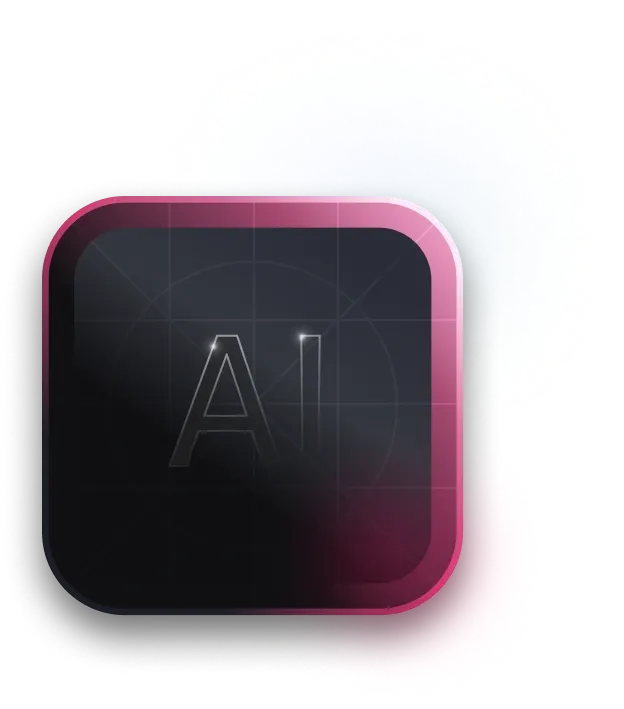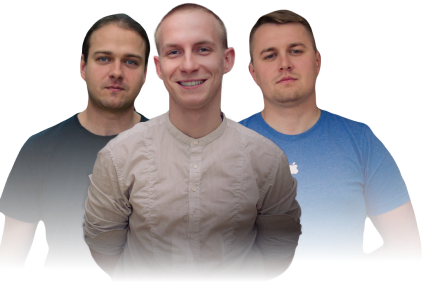Imagine a world where medical diagnoses are aided by the power of artificial intelligence (AI), which unveils hidden patterns in medical images. Treatment in this world is personalized with great precision. This is all about the implementation of computer vision in modern medicine.
While computers have long been used in the medical sector, computer vision in healthcare takes things further. It empowers machines to truly "see" and interpret visual information, such as X-rays and MRIs (magnetic resonance images). This technology provides possibilities for improving diagnosis, treatment, and overall patient care.
In this article, we will explore how computer vision (CV) is used in medicine, how it benefits this industry, and which tech stack lies behind it.
Benefits of Using Computer Vision in Healthcare Applications
There are many exciting benefits computer vision brings to the healthcare field. The main pros include the following:
Streamlined medical procedures
Surgeons can use AI-powered tools for real-time guidance, and radiologists can check scans faster with machine learning (ML) algorithms.
Remote care revolution
With computer vision, remote monitoring systems allow doctors to track patient recovery virtually, improving accessibility and convenience of treatment.
Explore the role of augmented reality in healthcare
Accelerated research
Artificial intelligence algorithms can analyze vast amounts of medical images, uncovering hidden patterns and accelerating research for new therapy methods.
Data-driven decisions
AI models can process medical data and provide unbiased insights, empowering healthcare professionals with the information they require to prescribe the right treatment.
Top Use Cases for Computer Vision in Healthcare Market
The worldwide volume of the computer vision market is booming. Per Grand View Research, the size was valued at $14.1 billion in 2022 and is forecasted to surge by 19.6% annually through 2030. There are various cases of computer vision use in healthcare. Let’s consider some of the most notable.
Help with diagnosing diseases
AI algorithms analyze medical scans with superhuman precision, identifying subtle abnormalities invisible to the human eye. This helps to put earlier diagnoses that improve treatment outcomes and potentially promise a future with fewer missed cancers. Did you know that 22,000 deaths of patients in the U.S. are connected with medical errors? Computer vision assists doctors with less experience in not making mistakes.
MRI scans you can see below hold hidden clues for cancer. Dr. Turkbey, a doctor with 15 years of experience, and an AI program both flag a suspicious area. Artificial intelligence trained on vast data could assist less experienced professionals in cancer detection.
Artificial intelligence eliminates patient misidentification
Mix-ups of people being treated can have serious consequences. Computer vision-based facial and body recognition systems can ensure patients receive the correct medical care, eliminating potentially dangerous misidentification.
Diverse algorithms for pose estimation, such as AlphaPose, have been established. These algorithms allow the training of computer vision apps for various clinical needs, including:
- Patient recognition,
- Monitoring rehabilitation progress,
- Assessing patient mobility and range of motion, and more.
Computer vision in healthcare applications assists surgeons
These experts can benefit from the precision of computer vision systems, especially for minimally invasive surgeries. For example, surgeons can assess real-time video footage from an endoscopic camera that assists in procedures.
Also, AI-powered systems can track surgical tools, minimizing the risk of instruments being left inside patients (a surprisingly common occurrence). There are many ways in which computer vision apps help surgeons during operations.
Let’s take the Triton system, for instance. This AI surgeon's assistant analyzes images during surgery, estimating blood loss in real time. It calculates blood volume and eliminates foreign fluids. This empowers surgeons to determine precise transfusion needs, optimizing patient care.
Accelerate medical research and monitoring
Computer vision streamlines research, from analyzing cell cultures to tracking disease progression. AI algorithms can process huge data amounts with unmatched speed and accuracy.
Scientists at the National Robotics Engineering Center of Carnegie Mellon University in Pennsylvania harnessed the power of computer vision. Specialists use an algorithm to track patients’ states in clinical trials for SMA (spinal muscular atrophy) therapeutics.
Computer vision in healthcare fills the shortage of specialists
The shortage of radiologists and technicians is a global challenge. Artificial intelligence can bridge this gap, acting as a tireless assistant and automating image analysis.
RADLogics offers an AI-powered platform that helps radiologists interpret medical images efficiently. Their software utilizes computer vision algorithms to analyze medical images and provide insights, helping to address the shortage of radiologists by improving workflow and accuracy.
Tips for Adoption of Computer Vision in Healthcare
The potential of computer vision in the healthcare area is undeniable, but successful implementation of such a solution requires careful planning and strategic execution. Here are some crucial tricks to guide you:
Assess your needs
Begin by conducting a detailed assessment of your healthcare facility's specific needs and challenges. Identify areas where computer vision could have the most significant impact, such as streamlining radiology workflows, improving surgical accuracy, or enhancing remote patient monitoring.
Prioritize data quality
Computer vision algorithms thrive on high-quality data. Ensure you have robust data management systems to efficiently collect, store, and organize medical images.
Embrace collaboration
Successful integration of computer vision applications in healthcare requires a collaborative approach. Foster open communication between IT and clinical teams. Collect feedback from healthcare professionals who will be using computer vision technologies.
Our AI and Data Science Case Studies

Focus on user experience
You should ensure your computer vision solutions are created with healthcare experts in mind. It is essential to prioritize clear workflows, intuitive interfaces, and seamless integration with existing medical systems.
Start small and scale up
Begin by implementing computer vision solutions in a focused area with clear and measurable benefits. Demonstrate the value proposition to your target audience and gradually scale up your initiatives that gained positive reactions.
Tech Stack of Computer Vision-based Software Used in Healthcare
The best tech stack behind the solution that enables machines to see like humans includes the following components:
With these powerful tools at our disposal, our team is equipped to tackle complex challenges in computer vision and deliver innovative solutions to our clients.
Our Computer Vision Expertise
At Requestum, we're passionate about creating innovative digital products that empower both users and businesses. We combine a profound understanding of customer needs with cutting-edge AI technology to bridge market gaps and deliver impactful solutions.
The Manifest, a B2B research and review platform, has named Requestum a 2022 Global Dev & IT Industry Frontrunner. Also, our company has been recognized as a 2022 Manifest Global Award Winner in Machine Learning Companies. These prestigious distinctions underscore our commitment to developing top-notch AI-powered solutions.
The Requestum team specializes in various aspects of computer vision. These comprise object detection and recognition, image and video processing, and image segmentation and classification tailored to different tasks.
Achieve your business goals with our expert software development services
For example, we leveraged computer vision to revolutionize the home workout experience. Traditional home workouts often lack guidance, leading to potential injuries or suboptimal results due to improper form. We developed an app that tackles such issues. Our web application analyzes user movements in real time applying the technology of computer vision.
We added a pose estimation feature using MediaPipe POSE to create a digital skeleton that thoroughly tracks people's body movements when doing exercises. Our experts applied the Dynamic Time Warping (DTW) algorithm to assess exercise performance accuracy, comparing user movements with a database of correct exercise forms.
The client got an application that assists users in performing exercises with proper form, minimizing the risk of traumatization and improving workout effectiveness.
Conclusion
The application of computer vision in healthcare is about creating a powerful synergy between human expertise and cutting-edge technology. Artificial intelligence will become a perfect assistant for medical specialists. This technology will help to automate routine operations, prevent potential defects and errors, and speed up the medicine care provision. If you need a powerful computer vision solution that attracts users, turn to us. The Requestum team is eager to discuss your idea and implement it into life.

Our team is dedicated to delivering high-quality services and achieving results that exceed clients' expectations. Let’s discuss how we can help your business succeed.


SHARE: